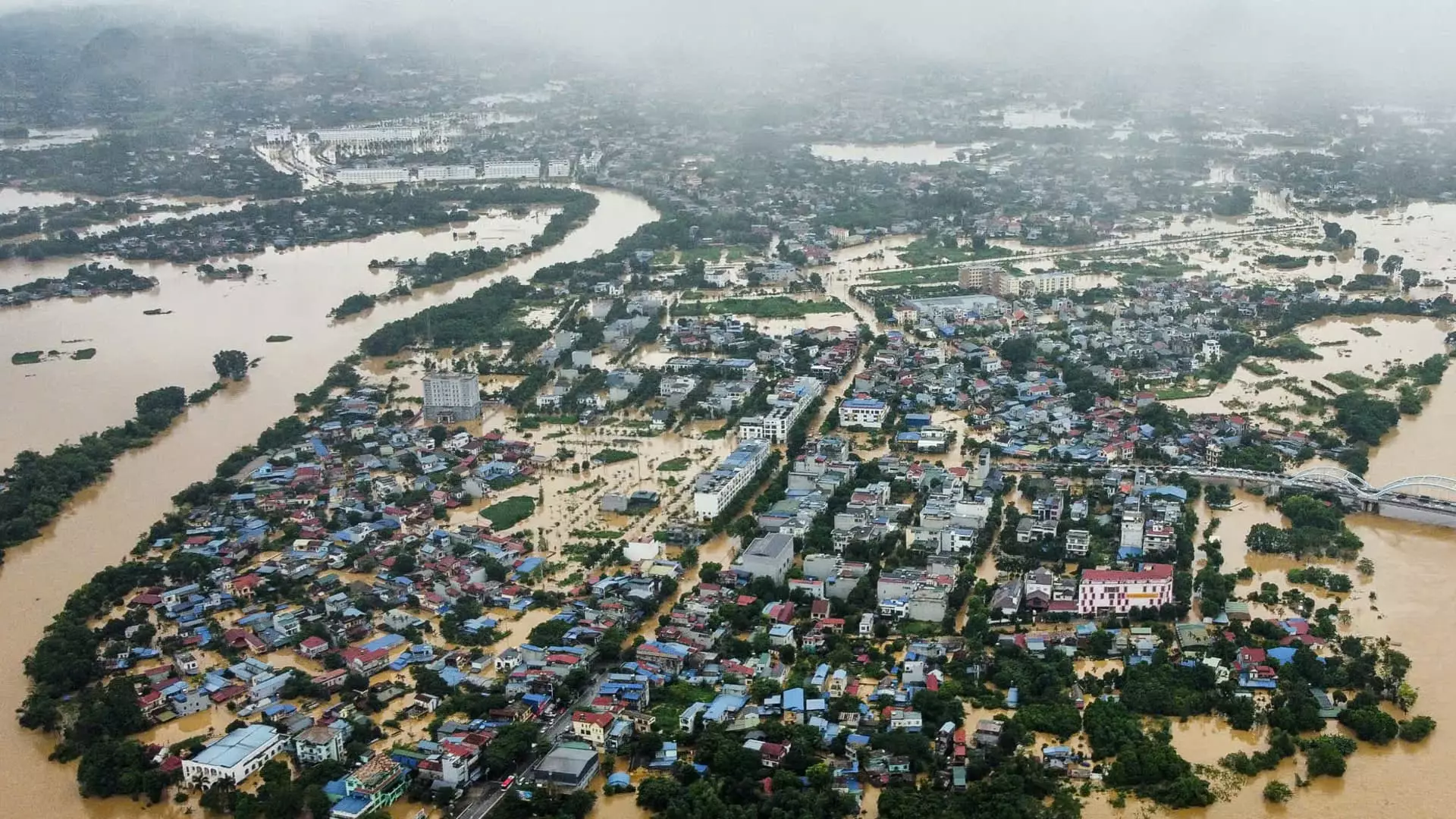The year 2024 in the Indo-Pacific region was marked by a striking juxtaposition of tribulations and celebrations. Despite economic uncertainties and persistent geopolitical tensions still being felt throughout the area, glimmers of hope and signs of resilience emerged. Our focus here will be to dissect the events that shaped the region’s narrative, exploring who faced adversity and who thrived amidst the storm.
As natural disasters continue to plague the Indo-Pacific, 2024 bore witness to an alarming increase in climate casualties, highlighting a disturbing trend in the wake of environmental neglect. The year was overshadowed by notable climatic events including Super Typhoon Yagi, which wreaked havoc from the Philippines to Southeast Asia, resulting in loss of life and substantial socio-economic disruption.
Unlike the significant tragedies of past decades, such as the catastrophic Indian Ocean earthquake in 2004, the climate effects in 2024 were more insidious, characterized by a series of extreme weather patterns rather than a singular destructive force. Flooding in regions like Afghanistan and Bangladesh stranded millions, while drought in places like India exacerbated already critical water shortages. This era of climate change rendered a new form of silent disaster where many victims remain overlooked, marking 2024 as one of the harshest years for climate impacts in Asia.
As the echoes of natural calamities resounded, another crisis quietly loomed. The drastic decline in birth rates across East Asian nations set alarm bells ringing among economists and demographers alike. Countries like South Korea, Japan, and China struggled with persistent fertility rates that fell woefully below the threshold required for sustainable population growth.
The implications of this demographic shift are profound, as aging populations and dwindling workforces pose significant economic challenges for these nations. Factors for such trends are intertwined with changing societal expectations, financial burdens associated with child-rearing, and evolving gender roles. By 2024, South Korea exemplified this predicament, emerging as an officially “super-aged” society where a substantial segment of the population is over 65 years old. Such demographic lows not only threaten social stability but can also reshape governmental policy in the ensuing years.
Political Shifts: A Mixed Bag for Democracy
The political landscape of the Indo-Pacific in 2024 was marked by a complex tapestry of electoral outcomes that revealed both the fragility and potential of regional democracies. From the political unrest in Bangladesh, where protestors forced longtime Prime Minister Sheikh Hasina to flee, to the martial law declaration in South Korea by President Yoon Suk-Yeol following significant electoral losses, the year saw democracy tested under varied circumstances.
Conversely, the spirit of democracy remained resilient in Taiwan. Elections there solidified democratic foundations, offering a stark contrast to the turbulence seen elsewhere in the region. In India, Prime Minister Narendra Modi faced backlash, forcing him to govern within a coalition framework—a testament to the evolving political dynamics within the world’s largest democracy. These contrasting scenarios illuminate the diverse trajectories of governance across the Indo-Pacific, reminding us of democracy’s inherent unpredictability.
Amidst the chaos, a cultural renaissance flourished, powered by South Korea’s entertainment industry. The ‘Hallyu’ phenomenon solidified its status as a global cultural powerhouse in 2024, extending beyond K-Pop to encompass cinema, television, and literature. As Korean media captivated millions around the world, with hits like “Queen of Tears” stealing accolades, the financial implications for South Korea were staggering. Industry estimates predicted economic contributions from Hallyu to reach nearly $198 billion by 2030, establishing South Korea as a vital player on the cultural stage.
In an intriguing blend of the serious and the whimsical, a baby pygmy hippo named Moo Deng captured hearts worldwide in 2024. The animal’s sudden rise to fame, aided by viral memes and social media attention, highlights the potential of soft power, where the appeal of culture can unify and engage audiences across various platforms.
The year 2024 presented the Indo-Pacific region with a mosaic of challenges and opportunities. From climate casualties to demographic shifts, the region is at a crossroads that demands urgent attention and action. However, as seen through burgeoning cultural exports and resilient democracies, there is still much to celebrate. The path forward hinges on the region’s ability to adapt to these multifaceted dynamics while harnessing the collective strength of its people. As we look ahead, the confluence of hope and hindrance defines the journey of the Indo-Pacific, marking 2024 as a pivotal year in its ongoing saga.


Leave a Reply